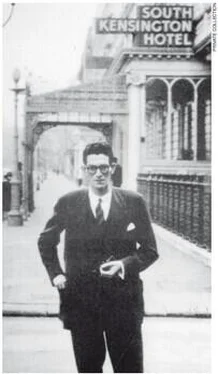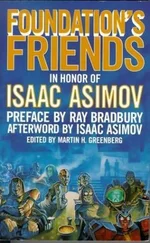Ben Macintyre - A Spy Among Friends
Здесь есть возможность читать онлайн «Ben Macintyre - A Spy Among Friends» весь текст электронной книги совершенно бесплатно (целиком полную версию без сокращений). В некоторых случаях можно слушать аудио, скачать через торрент в формате fb2 и присутствует краткое содержание. Год выпуска: 2014, ISBN: 2014, Издательство: Bloomsbury Publishing, Жанр: Старинная литература, на английском языке. Описание произведения, (предисловие) а так же отзывы посетителей доступны на портале библиотеки ЛибКат.
- Название:A Spy Among Friends
- Автор:
- Издательство:Bloomsbury Publishing
- Жанр:
- Год:2014
- ISBN:9781408851746
- Рейтинг книги:5 / 5. Голосов: 1
-
Избранное:Добавить в избранное
- Отзывы:
-
Ваша оценка:
- 100
- 1
- 2
- 3
- 4
- 5
A Spy Among Friends: краткое содержание, описание и аннотация
Предлагаем к чтению аннотацию, описание, краткое содержание или предисловие (зависит от того, что написал сам автор книги «A Spy Among Friends»). Если вы не нашли необходимую информацию о книге — напишите в комментариях, мы постараемся отыскать её.
A Spy Among Friends — читать онлайн бесплатно полную книгу (весь текст) целиком
Ниже представлен текст книги, разбитый по страницам. Система сохранения места последней прочитанной страницы, позволяет с удобством читать онлайн бесплатно книгу «A Spy Among Friends», без необходимости каждый раз заново искать на чём Вы остановились. Поставьте закладку, и сможете в любой момент перейти на страницу, на которой закончили чтение.
Интервал:
Закладка:
Philby had not seen Maclean since the end of the war, but their early friendship would not be hard to prove; Burgess knew Maclean much better, and was also a close friend of Anthony Blunt; the association between Burgess and Philby was evident; Blunt was also in touch with Maclean. If Maclean cracked, MI5 could swiftly establish the links between the spies, and the chain of suspicion would eventually lead to Philby.
Maclean was heading off the rails at fantastic speed. He had tried to persuade his Soviet handler that he no longer wished to be a Soviet spy, apparently unaware that this was not the sort of club one could resign from. Moscow simply ignored the request. In May 1950, the strain became too much for him: he got drunk, smashed up the Cairo flat of two secretaries at the US embassy, ripped up their underwear, and hurled a large mirror off the wall, breaking a large bath in two. He was sent home, placed under the care of a Harley Street psychiatrist, and then, amazingly, after a short period of treatment, promoted to head the American desk at the Foreign Office. Even drunken, unhinged knicker-shredding, it seemed, was no bar to advancement in the British diplomatic service if one was the ‘right sort’. But the shortlist of suspects was getting shorter, and Maclean’s name was on it. He was plainly on the verge of complete nervous collapse. If MI5 pulled him in for questioning, he was almost certain to crack. With Burgess as his go-between, Philby could now be sure of a ‘secure line of communication to Moscow’ if and when the crisis erupted.
Once installed in the Philby home, Burgess began to behave entirely in character. He crashed around Washington, dropping names, picking quarrels, downing numberless drinks, and leaving others to pay for them. He wore a filthy old duffel coat, eschewed soap, and loudly declared that Americans were incapable of intellectual thought. Philby introduced Burgess to Angleton as ‘the most outstanding historian of his time at Cambridge’. (Anyone familiar with Cambridge historians can attest that Burgess’s personal habits did not entirely negate that claim.) He was certainly outstandingly embarrassing. Some days later, Burgess lurched up to Angleton’s table at the Occidental Restaurant, sat down without invitation, and demanded a drink of ‘the cheapest bourbon’. He was wearing ‘a peculiar garb, namely a white British naval jacket which was dirty and stained. He was intoxicated, unshaven, and, by the appearance of his eyes, had not washed since he last slept.’ Burgess launched into a description of a mad scheme to import jackets like the one he was wearing to sell ‘for fantastic profits’ in New York. Then he demanded to be taken for a ride in Angleton’s Oldsmobile saloon, and finally asked the CIA officer to lend him some cash. Then he wandered off. There is no evidence Angleton found this behaviour objectionable. He liked British eccentrics, and any friend of Kim Philby was a friend of his.
On 19 January 1951, Philby made a fateful decision: with his wife depressed, his dangerous friend careening around Washington, and his own future uncertain, he decided to throw a dinner party. It was, by almost universal agreement, the dinner party from hell.
Philby invited all his senior contacts in American intelligence: the Angletons, of course, and Robert Lamphere, the FBI mole-hunter, along with the Manns and several others. Also present were Bill Harvey, a former FBI agent now in charge of CIA counter-intelligence, and his highly strung wife Libby. A hard-driving Ohio native, Bill Harvey was intelligent but also ‘a bloated alcoholic with the manners of a comically corrupt cop in a Raymond Chandler thriller’. The Harveys had already attended a dinner party chez Philby, which had ended with Bill Harvey slumped insensible at the table.
The evening began, as always, with Martinis served from a pitcher. There was an acrid mood in the air. Cicely Angleton noticed that Bob Lamphere was the only guest not smoking. ‘What Freudian impulse causes you not to smoke?’ she demanded archly. The drinking continued steadily, and in the case of Libby Harvey, unsteadily. With the meal over (no one could later recall what was said, or eaten), the guests moved on to whisky. At this point Burgess burst in. He was dishevelled, loudly inebriated, and itching for an argument. Libby lurched up to the new arrival, cornered him, and demanded that he draw a cartoon of her. Burgess was a talented sketcher, and his caricatures had become objects of admiration on the Washington dinner-party circuit. Burgess demurred. Libby drunkenly insisted. Finally, fed up with her badgering, he picked up a pad and pencil, and began to sketch. A few minutes later, with a glinting grin, he handed over the caricature.
Sadly, the finished artwork does not survive, but its broad outlines have been described by witnesses. The woman in the picture was unmistakably Libby Harvey, though her face was ‘beastily distorted’. Her face, however, was not the main focus of the cartoon: her dress was hiked up around her waist, her legs spread, and her naked pudenda bared. Libby stared at it, shrieked, and burst into tears. Bill Harvey threw a punch at Burgess. Uproar ensued. The Harveys stormed out.
Burgess found the incident hilarious. Philby did not. ‘How could you? How could you?’ he demanded, before slumping on the sofa. Aileen retired sobbing to the kitchen. Before drifting home, Angleton and Mann lingered outside 4100 Nebraska Avenue, like two teenagers after a fight, discussing what Angleton termed ‘a social disaster’.
Philby later sent the Harveys a ‘handsome’ apology for Burgess’s insulting behaviour.
‘Forget it,’ said Bill Harvey, charmlessly. But Harvey didn’t forget it.
A few weeks later, at Arlington Hall, came the break the decoders had been hoping for, and Philby had been dreading: Meredith Gardner finally decrypted a message dating back to June 1944, indicating that the spy ‘Homer’ had a pregnant wife who was then staying with her mother in New York. Melinda, Maclean’s American-born wife, had been expecting a child in 1944; her wealthy divorced mother lived in Manhattan; therefore Homer must be Donald Maclean.
News of the breakthrough flew to London, and then bounced back to Philby in Washington. He was now the closest to exposure since Volkov had threatened to unmask him in 1945. But time was on his side. There was no evidence, as yet, to connect him directly with Maclean, and the two men had not met for many years. Moreover, instead of arresting Maclean at once, MI5 opted to wait, and watch, in the hope of gathering further evidence. The Venona material was simply too secret to be used in court: by tapping his telephone, bugging his office, intercepting his post and putting him under surveillance, MI5 hoped to catch Maclean in direct contact with his Soviet controller. But the Security Service may also have been suffering from the sort of paralysis that affects organisations when faced with a situation that is deeply embarrassing, potentially ruinous and entirely unprecedented. Maclean, the most senior spy ever detected inside the British government, would remain at liberty for five more weeks.
Philby immediately relayed the bad news to Makayev, and demanded that Maclean be extracted from the UK before he was interrogated and compromised the entire British spy network – and most importantly Philby himself. But with Maclean now under close surveillance, arranging his escape was a delicate task, since any overt contact with the Soviets would trigger his immediate arrest. Maclean must be warned and told to flee by a third party who would not arouse suspicion. The ideal messenger, Philby concluded, was close at hand, in the disreputable and dishevelled shape of Guy Burgess, whose diplomatic career was about to come to an end in a car crash, almost literally. Whether by accident or design, he collected no fewer than three speeding tickets in a single day by hurtling around Virginia in a grey Lincoln convertible, claimed diplomatic immunity on all of them, insulted the officers who stopped him, and provoked a furious official protest from both the State Department and the governor of Virginia. It wasn’t quite goats, but for the ambassador it was the last straw. Burgess, in disgrace but wholly unrepentant, was instructed to return to London immediately. Philby would later claim that Burgess’s recall had been a carefully engineered ploy; it was probably more a lucky accident, but either way it presented an ideal opportunity to warn Maclean that he must flee to Moscow.
Читать дальшеИнтервал:
Закладка:
Похожие книги на «A Spy Among Friends»
Представляем Вашему вниманию похожие книги на «A Spy Among Friends» списком для выбора. Мы отобрали схожую по названию и смыслу литературу в надежде предоставить читателям больше вариантов отыскать новые, интересные, ещё непрочитанные произведения.
Обсуждение, отзывы о книге «A Spy Among Friends» и просто собственные мнения читателей. Оставьте ваши комментарии, напишите, что Вы думаете о произведении, его смысле или главных героях. Укажите что конкретно понравилось, а что нет, и почему Вы так считаете.












